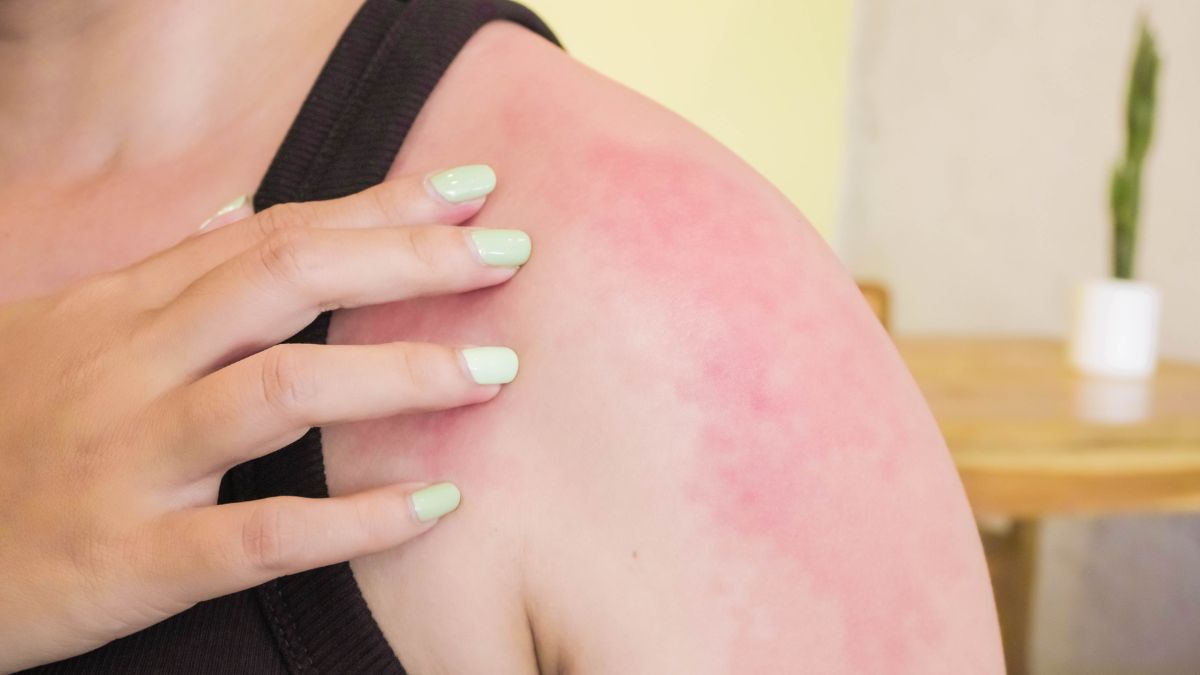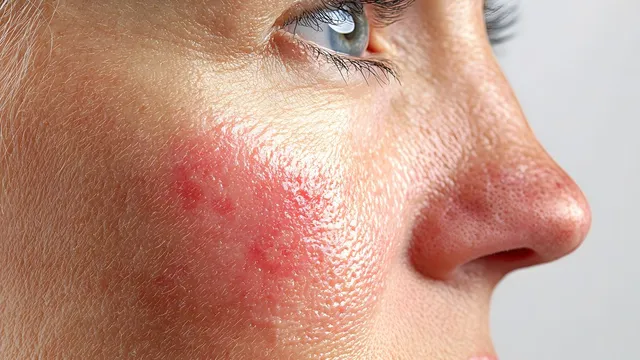- By Bornika Das
- Mon, 03 Nov 2025 06:07 PM (IST)
- Source:JND
Inflammation plays a much greater role in skin care than many know. It's not only the body's natural defence mechanism but also one of the silent culprits behind persistent acne and rosacea to pigmentation, eczema, and premature ageing. Daily triggers, such as stress, pollution, poor diet, and lack of sleep, act like fuel for internal inflammation, which shows later in the form of external skin problems. It is important to stress that this inflammation needs to be worked upon both from within and outside; after all, healthy, glowing skin starts at the cellular level. Understanding this hidden link is key to a really effective skincare and wellness regimen.
The skin barrier often mirrors what's happening beneath the surface. When inflammation is sustained, collagen production weakens, and elasticity, irritation, breakouts and dullness set in. This process, called inflammaging, pinpoints an invisible connection between long-standing inflammation and skin ageing. Good inflammation management through antioxidants, right nutrition, and properly formulated skincare prevents early signs of damage. In conversation with The Daily Jagran, Nitin Guppta, Founder, juhst shares holistic care instead of mere topical fixes to prevent chronic inflammation on the skin.
How Skincare Affects Inflammatory Response
Skincare is more than just a cosmetic routine; it can either support or aggravate the skin’s inflammatory response. Nitin Guppta states, “Using the right kind of products can help the skin build resilience, regulate its reactions, and restore its natural balance.”
Recommended For You
ALSO READ: Why Skin Becomes Saggy After Weight Loss And How to Prevent It? Dermatologist Explains
Many experts today advocate for a more mindful approach to skincare, one that respects the skin’s rhythm instead of overwhelming it with excessive or harsh ingredients. This includes using products with calming, restorative ingredients and focusing on fewer, well-thought-out formulations.
Common Skincare Triggers Of Inflammation
Certain ingredients and routines may be doing more harm than good, especially when used without moderation. Some common triggers include:
- Harsh exfoliants that damage the skin’s natural acid mantle
- Synthetic fragrances and alcohols that strip and sensitise the skin
- Overuse of actives like retinol or exfoliating acids without proper skin recovery
- Environmental aggressors like pollution and UV rays that increase oxidative stress
- Understanding and avoiding these triggers is the first step toward calmer, healthier skin.
The Power Of Soothing Ingredients
Scientific research supports the use of specific botanicals and peptides in managing skin inflammation. Ingredients like Centella Asiatica and Reishi Mushroom, known for their adaptogenic and antioxidant properties, can help calm microinflammation and encourage healing.

Skin Inflammation Causes (Image Credits: Canva)
Nitin Guppta mentions, “Peptides, when formulated properly, serve as cellular messengers. They encourage skin to repair itself and reduce unnecessary inflammatory responses, helping to prevent flare-ups and long-term damage.”
Hydrating ingredients like low molecular weight hyaluronic acid also play a critical role. They not only replenish moisture but support the skin’s barrier without clogging pores, making them ideal for inflamed or sensitive skin types.
Building A Holistic Skincare Routine
Inflammation management doesn’t require complicated or aggressive routines. In fact, simplicity often works best. A well-balanced approach includes:
- Gentle cleansing that doesn’t strip the skin
- Consistent hydration using non-comedogenic humectants
- Barrier-repairing moisturisers rich in lipids and ceramides
- Support for the microbiome, avoiding harsh preservatives or over-cleansing
- Sun protection to prevent UV-triggered inflammation
Being patient and consistent with skincare choices can help train the skin to react less aggressively over time.
When To Seek Professional Help
For chronic conditions like rosacea, eczema, or severe post-acne redness, professional consultation may be necessary. Dermatologists can offer guidance on how to manage inflammation with prescription treatments, lifestyle shifts, and supportive skincare products.
ALSO READ: Kids’ First Skincare Routine: Essential Dos And Don’ts Every Parent Should Know
The Future Of Skincare Is Inflammation Aware
The conversation around skin health is evolving. More people are beginning to understand that calm skin isn’t just a visual goal; it’s a sign of deeper balance and well-being. As knowledge around inflammation deepens, so does the approach to skincare, one rooted in empathy, intention, and science.
Instead of chasing trends or perfection, the focus is shifting to supporting the skin in its natural, dynamic state. Because ultimately, healthy skin is calm skin.





